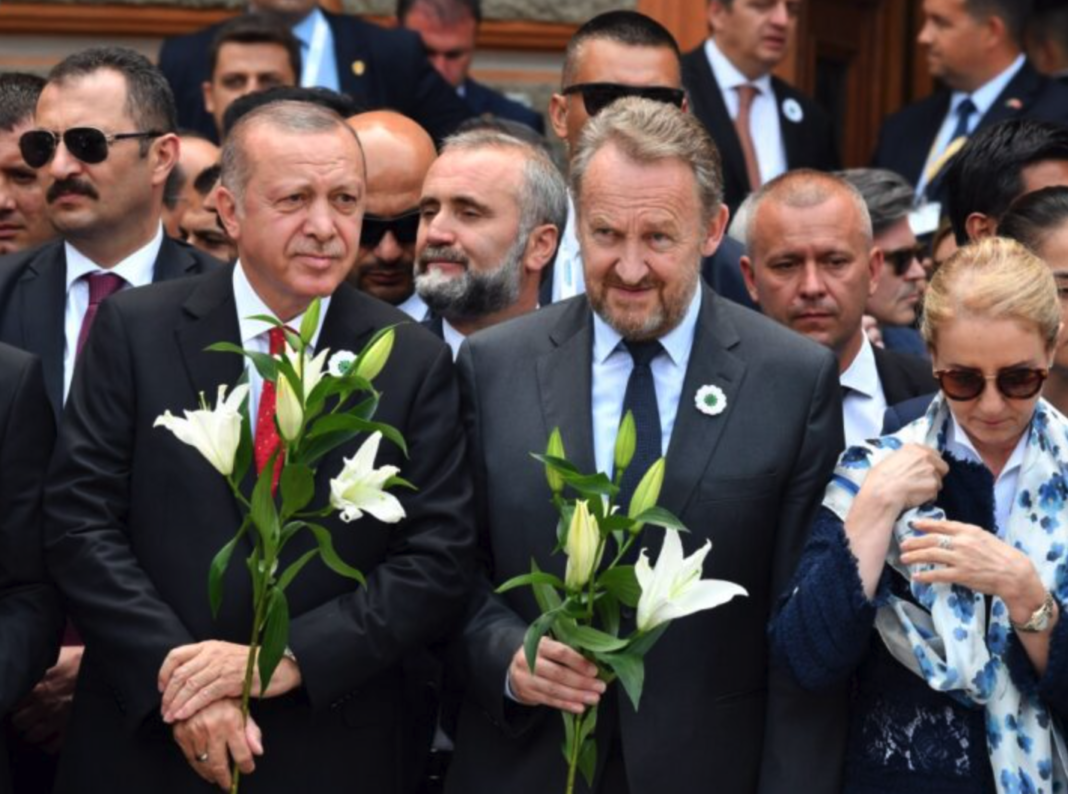Turkey and Bosnia have entered into a security cooperation agreement that includes operational intelligence sharing, training and equipment donation, prompting concern that Turkey may use the agreement to export human rights violations to Bosnia, Nordic Monitor reported. By Nordic Monitor on April 6, 2023.
In the text of the agreement, obtained by Nordic Monitor, the two countries pledge to cooperate in fighting transnational organized crime, including money laundering, cybercrime, migrant smuggling, terrorism and economic and financial crime.
The agreement, currently awaiting approval in the Turkish parliament, was signed on September 20, 2020. It is expected to soon clear both the parliamentary committee and general assembly.
The provisions in the agreement concerning cooperation on terrorism offenses spell trouble for Bosnian authorities considering how the government of President Recep Tayyip Erdogan brands all of his critics, opponents and dissidents as terrorists.
In recent years, hundreds of thousands of Turks, including journalists, politicians, lawyers and human rights defenders, have been investigated, prosecuted and/or sentenced to prison time under Turkey’s much-abused terrorism laws in sham trials despite the fact that they had nothing to do with terrorism or violence.
Article 2 of the agreement, which covers cooperation on terrorism offenses, states that “cooperation in the fight against terrorism shall include, in particular, cooperation relating to the exchange of information, intelligence and assessments, and operational cooperation on terrorist organizations and their modus operandi, terrorist acts, terrorist financing, affecting the security of the Parties, and techniques and methods used in the prevention, countering and suppression of terrorism.”
During parliamentary deliberations on the approval of similar security protocols with other countries, Turkish government officials openly admitted that such agreements would contribute to the Turkish government’s efforts to suppress people affiliated with the Gülen movement in other countries.
What is more, at the insistence of Turkish officials, the agreement includes provisions on how to regulate the media in fighting against terrorism offenses, which has been a continuing pattern in such agreements signed by Turkey with dozens of countries in recent years, especially with countries that have problems in democracy, human rights and freedom of the press.
The agreement states that “In combatting terrorism, the Parties shall prevent the activities of the visual and written media organs of terrorist organizations and their front institutions operating in their territories against the other Party and the both Parties consider them as terrorist organizations and take appropriate measures in this regard according to their national legislations.”
The Erdogan government has used terrorism laws to shut down nearly 200 media outlets since 2016, including the country’s most highly circulated daily, Zaman, and leading TV networks, and has imprisoned well over 100 journalists on fabricated terrorism charges. The government also went after journalists living outside Turkey and asked European governments to force them to return home in order to silence their voices. European countries rejected Turkey’s demands, making clear that journalistic activity is not considered a terrorism offense in democracies.
President Erdogan submitted the 12-article agreement to parliament for ratification on March 31, and the Speaker’s Office sent the agreement for debate to the Foreign Affairs Committee on April 3.
The two countries have also committed themselves to exchanging information by monitoring the movement of technological equipment and all kinds of weapons and ammunition that could be used in the preparation and perpetration of terrorist acts with the aim of preventing the terrorist organizations from acquiring that equipment.
The agreement allows both sides to appoint liaison officers and other experts on crime to increase the efficiency of interaction and coordination of joint actions. According to the text, the parties will carry out training programs and courses and conduct projects for analyzing the nature, dynamics and forms of terrorism.
The text was signed in Sarajevo by Turkish Interior Minister Süleyman Soylu and his Bosnian counterpart, Selmo Cikotic, the then-security minister of Bosnia. The agreement is valid for five years and will be automatically extended. According to the text, either party must notify the other of the intent to terminate at least six months in advance.

